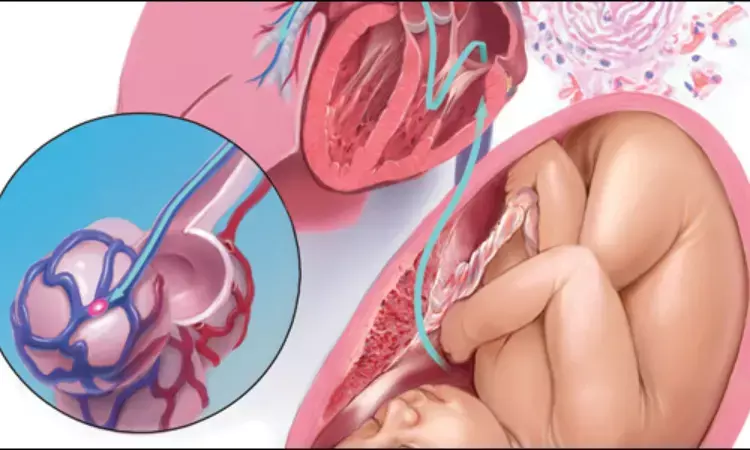- Home
- Medical news & Guidelines
- Anesthesiology
- Cardiology and CTVS
- Critical Care
- Dentistry
- Dermatology
- Diabetes and Endocrinology
- ENT
- Gastroenterology
- Medicine
- Nephrology
- Neurology
- Obstretics-Gynaecology
- Oncology
- Ophthalmology
- Orthopaedics
- Pediatrics-Neonatology
- Psychiatry
- Pulmonology
- Radiology
- Surgery
- Urology
- Laboratory Medicine
- Diet
- Nursing
- Paramedical
- Physiotherapy
- Health news
- Fact Check
- Bone Health Fact Check
- Brain Health Fact Check
- Cancer Related Fact Check
- Child Care Fact Check
- Dental and oral health fact check
- Diabetes and metabolic health fact check
- Diet and Nutrition Fact Check
- Eye and ENT Care Fact Check
- Fitness fact check
- Gut health fact check
- Heart health fact check
- Kidney health fact check
- Medical education fact check
- Men's health fact check
- Respiratory fact check
- Skin and hair care fact check
- Vaccine and Immunization fact check
- Women's health fact check
- AYUSH
- State News
- Andaman and Nicobar Islands
- Andhra Pradesh
- Arunachal Pradesh
- Assam
- Bihar
- Chandigarh
- Chattisgarh
- Dadra and Nagar Haveli
- Daman and Diu
- Delhi
- Goa
- Gujarat
- Haryana
- Himachal Pradesh
- Jammu & Kashmir
- Jharkhand
- Karnataka
- Kerala
- Ladakh
- Lakshadweep
- Madhya Pradesh
- Maharashtra
- Manipur
- Meghalaya
- Mizoram
- Nagaland
- Odisha
- Puducherry
- Punjab
- Rajasthan
- Sikkim
- Tamil Nadu
- Telangana
- Tripura
- Uttar Pradesh
- Uttrakhand
- West Bengal
- Medical Education
- Industry
Amniotic fluid embolism rare but associated with maternal mortality: JAMA

Los Angeles: Findings from a national-level analysis published in JAMA Network Open have confirmed the dismal outcomes of pregnancies complicated by an amniotic fluid embolism (AFE) and indicate the placental accreta spectrum (PAS) may be associated with AFE.
Amniotic fluid embolism is a rare pregnancy complication which leads to higher maternal mortality. Because of the uncommonness of AFE, associated risk factors and maternal outcomes have not been studied well. Considering this, in a retrospective cohort study, Genevieve R. Mazza, University of Southern California, Los Angeles, and colleagues aimed to investigate the pregnancy, clinical, and delivery characteristics and the maternal outcomes tied to AFE.
The study examined hospital deliveries from the National Inpatient Sample of the Healthcare Cost and Utilization Project between January 1, 2016, to December 31, 2019. Pregnancy, clinical, and delivery characteristics of amniotic fluid embolism were assessed with a multivariable binary logistic regression model (primary outcome). The researchers also evaluated the associations with other indicators of severe maternal morbidity and failure to rescue per clinical and pregnancy characteristics. Failure to rescue was defined as maternal mortality after AFE (coprimary outcome).
The authors reported the following findings:
- Out of a total 14 684 135 deliveries examined, AFE was diagnosed in 880 women, reflecting an incidence rate of 6.0 for each 100 000 deliveries. The median patient age was 29 years.
- In a multivariable analysis, (1) patient factors of Asian and Black race, older age, pregestational hypertension, grand multiparity, illicit substance use, Western US region, and asthma; (2) pregnancy factors of PAS, uterine rupture, placental abruption, polyhydramnios, chorioamnionitis, preeclampsia, fetal demise and fetal growth restriction; and (3) delivery factors of early gestational age, cesarean delivery, cervical ripening, operative delivery, and manual removal were linked with AFE. Among these characteristics, PAS had the most significant association with AFE.
- More severe PAS forms had a more significant association with AFE (aOR for increta and percreta, 17.35 and aOR for accreta, 7.62).
- Patients having AFE were more likely to have a cardiac arrest, coagulopathy, and adult respiratory distress syndrome.
- Overall, the failure-to-rescue rate after AFE was 17.0%. However, in cases where AFE co-occurred with other indicators of severe maternal morbidity, the failure-to-rescue rate exceeded 30%: 45.8% for AFE, cardiac arrest, and coagulopathy; 43.2% for AFE, shock, and cardiac rhythm conversion; and 38.6% for AFE, cardiac arrest, coagulopathy, and shock.
- In the setting of placental pathology, when AFE occurred, the failure-to-rescue rate after AFE also exceeded 30%: 31.3% for AFE and placental abruption and 42.9% for AFE and PAS.
"The study confirmed that AFE is a rare complication of pregnancy but is linked with the significant maternal outcome," the researchers wrote. "Further studies are required to address the association between placental accreta spectrum and amniotic fluid embolism."
The researchers also stress the importance of establishing and distributing the universal diagnostic criteria for AFE.
Reference:
Mazza GR, Youssefzadeh AC, Klar M, et al. Association of Pregnancy Characteristics and Maternal Mortality With Amniotic Fluid Embolism. JAMA Netw Open. 2022;5(11):e2242842. doi:10.1001/jamanetworkopen.2022.42842
Dr Kamal Kant Kohli-MBBS, DTCD- a chest specialist with more than 30 years of practice and a flair for writing clinical articles, Dr Kamal Kant Kohli joined Medical Dialogues as a Chief Editor of Medical News. Besides writing articles, as an editor, he proofreads and verifies all the medical content published on Medical Dialogues including those coming from journals, studies,medical conferences,guidelines etc. Email: drkohli@medicaldialogues.in. Contact no. 011-43720751


